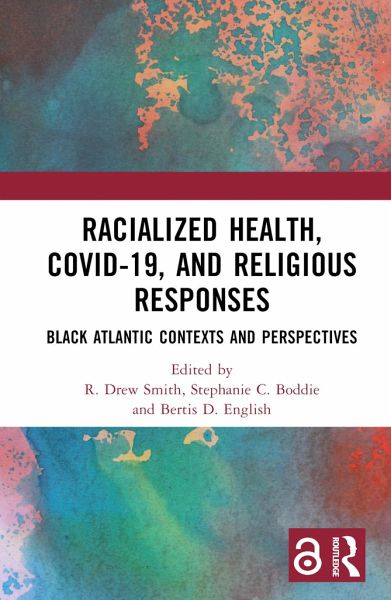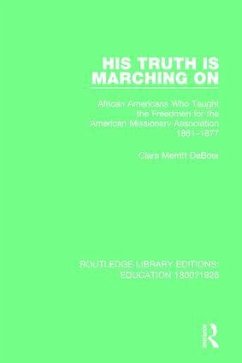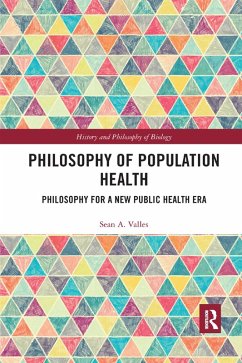
Racialized Health, Covid-19, and Religious Responses
Black Atlantic Contexts and Perspectives
Herausgegeben: Smith, R. Drew; Boddie, Stephanie C.; English, Bertis D.
Versandkostenfrei!
Versandfertig in 6-10 Tagen
154,99 €
inkl. MwSt.

PAYBACK Punkte
77 °P sammeln!
Racialized Health, COVID-19, and Religious Responses: Black Atlantic Contexts and Perspectives explores black religious responses to black health concerns amidst persistent race-based health disparities and healthcare inequities. This cutting-edge edited volume provides theoretically and descriptively rich analysis of cases and contexts where race factors strongly in black health outcomes and dynamics, viewing these matters from various disciplinary and national vantage points. The volume is divided into the following four parts:Systemic and Socio-Cultural Dimensions of Black HealthEcclesial R...
Racialized Health, COVID-19, and Religious Responses: Black Atlantic Contexts and Perspectives explores black religious responses to black health concerns amidst persistent race-based health disparities and healthcare inequities. This cutting-edge edited volume provides theoretically and descriptively rich analysis of cases and contexts where race factors strongly in black health outcomes and dynamics, viewing these matters from various disciplinary and national vantage points. The volume is divided into the following four parts:
Systemic and Socio-Cultural Dimensions of Black Health
Ecclesial Responses to Black Health Vulnerabilities
Public Education and Policy Considerations
Spirituality and the Wellness of Black Minds, Bodies and Souls
Part I explores ways social and cultural factors such as racial bias, religious conviction, and resource capacity have influenced and delimited black health prospects. Part II looks historically and contemporarily at denominational and ecumenical responses to collective black health emergencies in places such as Nigeria, the UK, the US, and the Caribbean. Part III focuses on public advocacy, particularly collective black health, both in terms of policy and education. The final section deals with spiritual, psychological, and theological dimensions, understandings, and pursuits of black health and wholeness.
Collectively, the essays in the volume delineate analysis and action that wrestle with the multidimensional nature of black wellness and with ways broad public resources and black religious resources should be mobilized and leveraged to ensure collective black wellness.
"The Open Access version of this book, available at www.taylorfrancis.com, has been made available under a Creative Commons Attribution-Non Commercial-No Derivatives 4.0 license."
Systemic and Socio-Cultural Dimensions of Black Health
Ecclesial Responses to Black Health Vulnerabilities
Public Education and Policy Considerations
Spirituality and the Wellness of Black Minds, Bodies and Souls
Part I explores ways social and cultural factors such as racial bias, religious conviction, and resource capacity have influenced and delimited black health prospects. Part II looks historically and contemporarily at denominational and ecumenical responses to collective black health emergencies in places such as Nigeria, the UK, the US, and the Caribbean. Part III focuses on public advocacy, particularly collective black health, both in terms of policy and education. The final section deals with spiritual, psychological, and theological dimensions, understandings, and pursuits of black health and wholeness.
Collectively, the essays in the volume delineate analysis and action that wrestle with the multidimensional nature of black wellness and with ways broad public resources and black religious resources should be mobilized and leveraged to ensure collective black wellness.
"The Open Access version of this book, available at www.taylorfrancis.com, has been made available under a Creative Commons Attribution-Non Commercial-No Derivatives 4.0 license."














